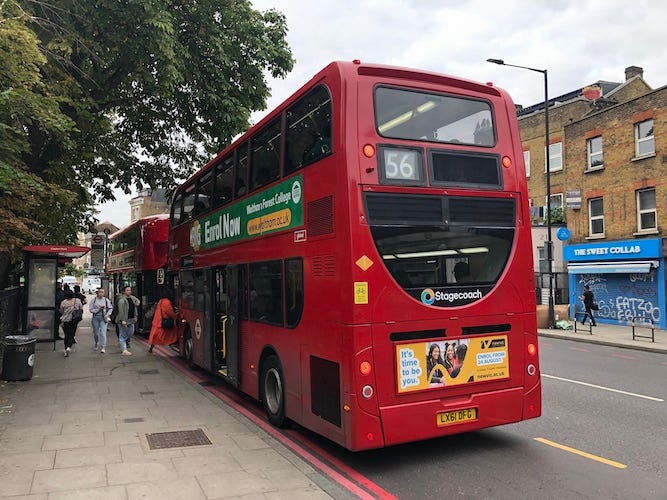Small change hustler in a red baseball cap
A sketch from last summer
Hello, and a big welcome to all new subscribers.
I am currently pursuing my mission to read and write about 25 pieces of London fiction I haven’t read before on a twin-track basis. That is to say, I am reading two London novels in parallel.
One is a treasured, 1960s paperback edition of Nell Dunn’s Up The Junction, a fast read which fits easily into a bag or pocket. The other is the recent and rather more daunting The Black Locomotive by Rian Hughes.
I think I know which I will finish first. Whichever it turns out to be, you will read about it here.
Don’t forget, dear readers, that my own London novel, Frightgeist: A Tall Tale of Fearful Times can be bought either directly from me or from my local independent bookshop, Pages of Hackney. The setting is a London gripped by turmoil and disease at the time of a campaign to become London Mayor in the recent past. Sound familiar?
Now, I’ve republished below a London sketch I wrote last summer, describing perhaps the most hard-nosed example of loose change-cadging I have ever seen. He got on to the same bus as me and then shifted his focus to the street. Well, I had to follow him, didn’t I?
The sketch starts under the photo.
Small change hustler in a red baseball cap.
He jumped aboard the Number 56 by the Pembury estate, starting exactly as he would go on.
“Off at the next stop, driver,” he said sweeping past the cab without paying. He was a tall man, good posture, light grey joggers, off-white Nike top, red baseball cap. Noticeable. Distinctive. Moving down the lower deck, he got directly to the point.
“Small change? Any small change?”
I kept looking straight forward, as you do. I thought I heard a purse rattle to my rear. He didn’t get off at the next stop, but neither did he stick around for long. He disembarked on Dalston Lane, shortly after Hackney Downs station. What was I supposed to do but follow him?
It was a Tuesday evening. The light was starting to fade. A bar across the road was pretty busy. Small Change Man strode across to it and leaned in to the al fresco drinkers’ faces.
“Small change, any small change?”
Nothing doing. Within seconds he’d moved on, walking fast. He spoke to a passer-by.
“Small change, any small change?”
It was the candour of it all that struck me. The utter absence of preliminaries. No rehearsed hard luck story, no self-abasing apology like the ones that assail you on the Overground. Also, the efficiency. He didn’t waste time pleading or wheedling. He heard the body language of rejection in an instant and moved on.
“Small change, any small change?”
I kept walking in parallel with him, wondering where he was heading, speculating about what he might spend any small change he gathered on. If he spotted me, he’d also rejected me, or else simply stuck to targets who were nearer.
“Small change, any small change?”
He was gone so fast from everyone who turned him down, it was like an insult – you have money for me or you don’t exist. A shop door stood open. There were people inside. He plunged in, red cap bobbing, plunged out again, hustled on towards a busy road junction, buttonholing, getting nothing, pacing on.
What had he made so far? If he had scored on the bus, it surely wasn’t more than a pound. I had seen no cash change hands since he’d got off. I was puzzled by his stature, his apparent health and vigour. He had presence: the pale clothing standing out, the red cap making a bright contrast on top. He gave the impression of a man going places, but what type of place? Not the type I’d want to go out, I don’t think.
I had to get on board another bus at Dalston Junction – a dinner date awaited me near Islington Green. He bore restlessly down Queensbridge Road. The last I saw of him, he’d ducked into another bar or restaurant. I couldn’t hear him, but I knew what he was saying.
This sketch was previously published at On London.co.uk.


